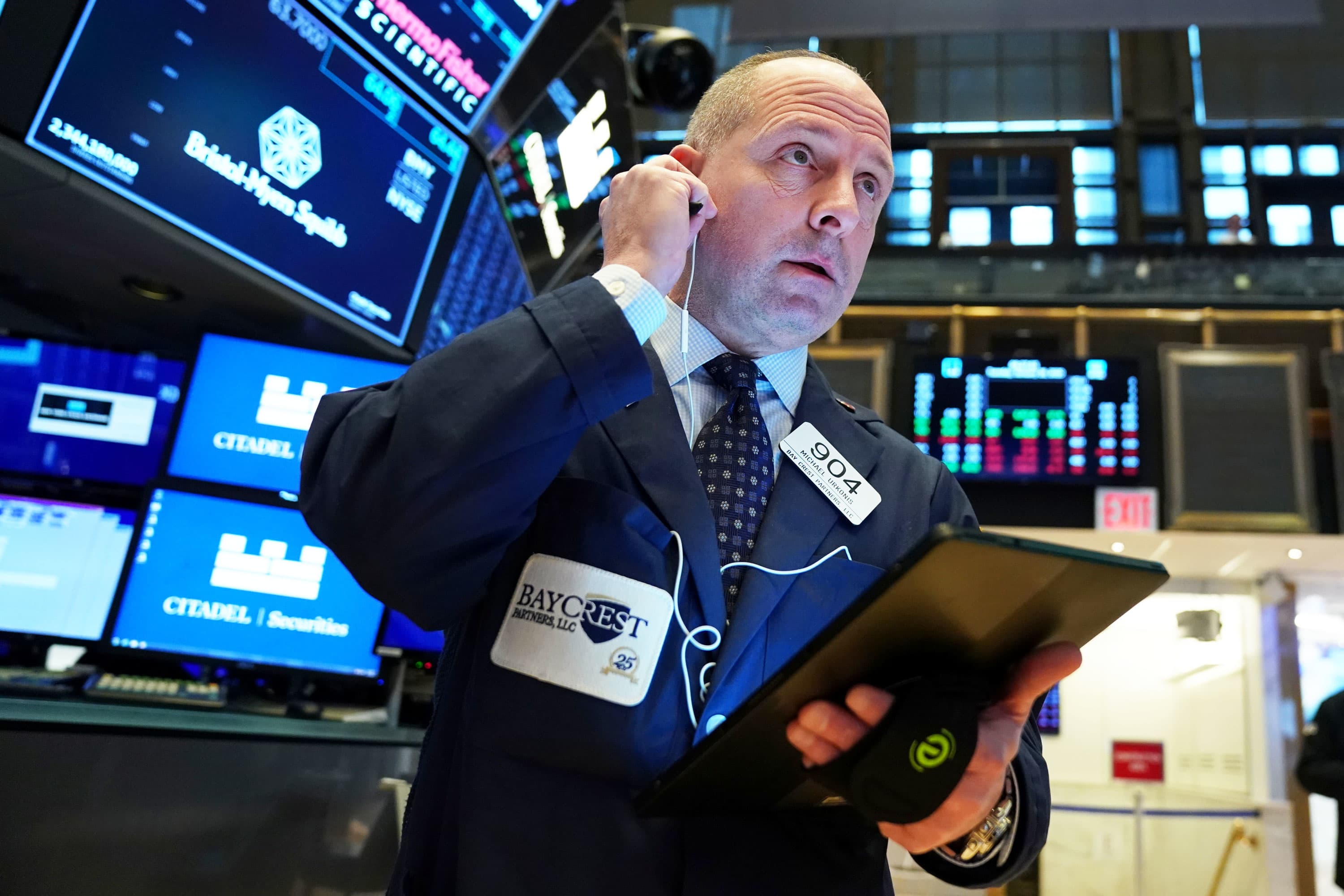This post was originally published on this site

Trader Michael Urkonis works on the floor of the New York Stock Exchange, January 28, 2020.
Bryan R Smith | Reuters
For investors struggling to see an end to this market mayhem, JPMorgan said it’s time to buy the dip as the bank believes the coronavirus impact is “likely temporary” and the Federal Reserve will come to the rescue.
Stocks tumbled into correction territory briefly on Thursday as the massive sell-off accelerated amid concern over the fast-spreading coronavirus and its damage to the global economy. JPMorgan is sticking with its bullish market forecast, with a year-end S&P 500 target of 3,400, betting on “potential Fed insurance cuts” to lift stocks. The target represents a 10% rise from Thursday’s level.
“While it is easy to turn cautious on the market after a ~10% drop, we argue investors should not discount the benefit of announced and unannounced global policy responses that are likely to outlast the impact of COVID-19,” Dubravko Lakos-Bujas, J.P. Morgan’s chief U.S. equity strategist, said in a note on Thursday.
Amid the market rout, traders are increasingly pricing in a rate reduction in the coming months. The fed funds futures market is assigning a more than 70% chance of a rate cut at the Fed’s March policy meeting, according to the CME FedWatch Tool. Traders also see the possibility of three reductions in 2020.
“Potential Fed insurance cuts at a time when the US employment base is close to full and prime-age participation rate is on a rise could result in an even hotter economy once the COVID-19 impact rolls off and stimulus remains,” Lakos-Bujas said.
JPMorgan’s view is more bullish than some of the other biggest banks on Wall Street. For instance, Goldman said Thursday it now sees zero earnings growth for U.S. companies this year because of the outbreak.
Still, JPMorgan believes the sell-off is only short-lived as it thinks the stock rout is also partly caused by the rise of Senator Bernie Sanders in the Democratic Presidential pool.
“Additionally, the market is pricing in rising odds of a progressive candidate, even though much can still change ahead of the DNC nomination, while polls remain firmly in favor of President Trump,” Lakos-Bujas said.
The bank is not alone in blaming the sell-off to the election. “Bond king” Jeffrey Gundlach also pointed the finger at Sanders for the market’s tumultuous rout this week.
Subscribe to CNBC PRO for exclusive insights and analysis, and live business day programming from around the world.





